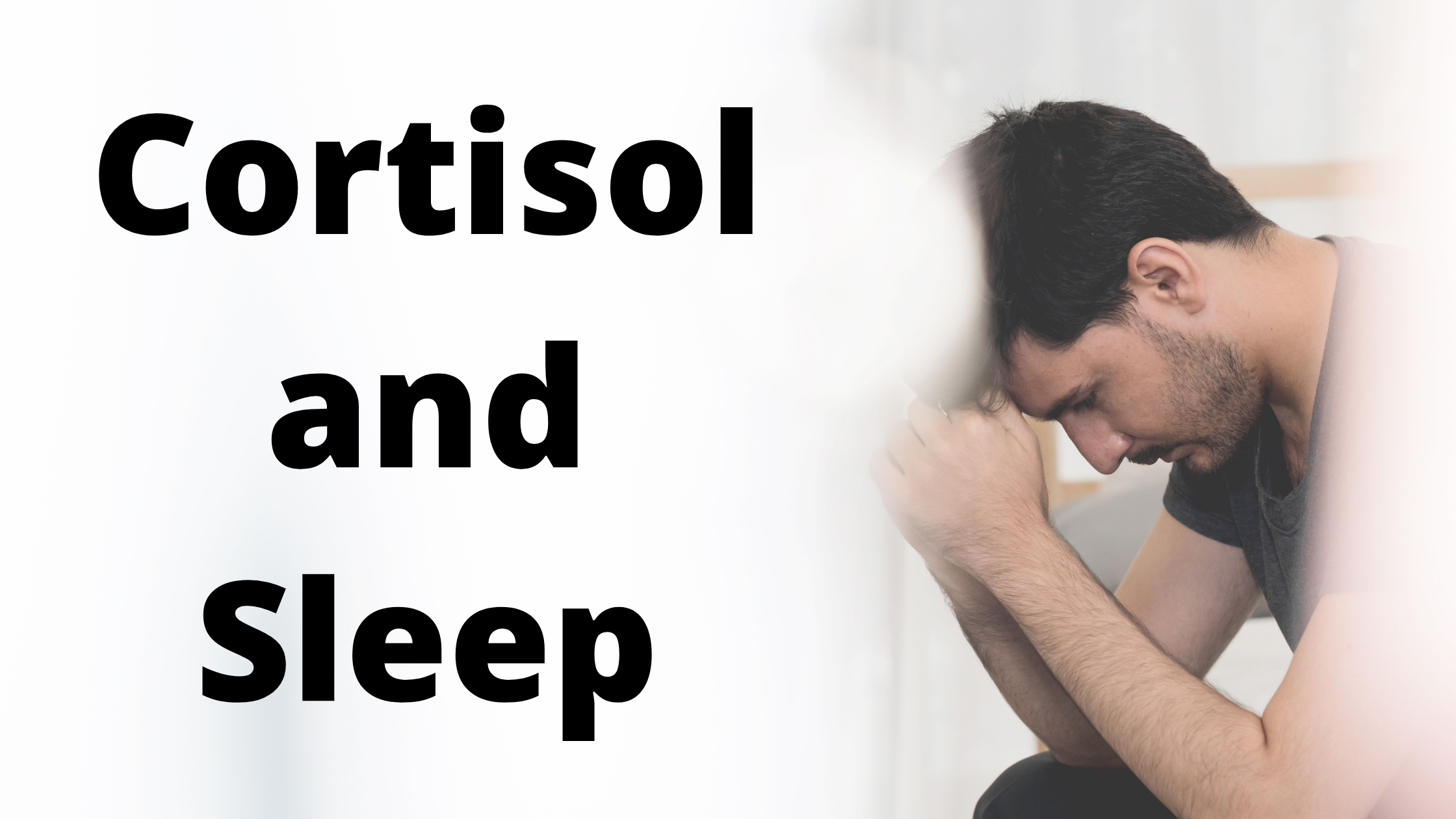
Cortisol is known as the stress hormone in your body. It is released from the hypothalamic-pituitary axis (HPA), which is the part of your brain that is responsible for the release of several key hormones in your body. Cortisol has a variety of functions, and when normal, is essential for key body functions. However, when levels of cortisol are abnormal, there are some key consequences, including your sleep. Continue reading to find out how cortisol affects your sleep.
Cortisol and Stress
Cortisol regulates many functions in the body, but it is most known for its role in stress. Under stressful conditions, the HPA leads to the release of cortisol from your adrenal gland. Cells all over your body have cortisol receptors, so the response is very rapid. Increased heart rate, increased breathing, and sharpened senses are all consequences of cortisol activation.
Cortisol prepares you to fight or flee, and can also impact your mood, influence digestion and metabolism, as well as help with your immune system function.
Cortisol and Sleep
If cortisol is a function of stress, then how could it impact sleep? Well, sleep and cortisol share the same pathway, the HPA axis. When something disrupts the HPA axis functions, it can disrupt sleep cycles as well.
The circadian rhythm, or sleep-wake cycle, follows an approximate 24-hour schedule. The production of cortisol follows roughly the same schedule, with its dip at midnight and its peak about an hour after you wake up. There are also other small releases of cortisol throughout the day.
You enter through four sleep cycles throughout the night, three non-rapid eye movement (NREM) and one rapid eye movement (REM).
An overactive HPA can disrupt this cycle and prevent you from getting the deep sleep that is required for restorative sleep. High cortisol levels throughout the night are not optimal for fulfilling sleep.
Lack of sleep can lead to increased illness, inflammation, mood dysregulation, daytime sleepiness, and put you at an increased risk for chronic diseases like cardiovascular diseases.
What can affect cortisol?
Diet
Diets high in animal proteins, refined sugars, salt, and fat can profoundly affect the circadian production of cortisol. Fruits and vegetables promote health cortisol production rhythms necessary for sound, regular sleep.
Stress and trauma
When you experience a stressful event, the burst of cortisol production is short-lived, and you return to normal cortisol levels fairly quickly. Stress is chronic or ongoing, affecting your HPA axis and cortisol levels.
Sometimes trauma causes cortisol levels to be too high for too long. But in other instances, trauma and PTSD can cause a drop in cortisol levels. Those with prolonged trauma have chronically low cortisol levels, potentially a response to consistently facing some sort of stressor.
Sleep disorders
Obstructive sleep apnea affects the HPA axis and causes spikes in cortisol production. Researchers found that when they took away a CPAP, cortisol and glucose levels rose.
Cushing's syndrome or Cushing's disease
Cushing's syndrome is an elevated level of cortisol. The most common cause of Cushing's syndrome is the long-term use of high doses of corticosteroid medications like prednisone.
Cushing's disease, on the other hand, is characterized by elevated cortisol levels caused by a tumor in the pituitary gland. The pituitary gland is a part of the HPA and is responsible for releasing ACTH, a hormone that stimulates the adrenal glands to release cortisol. When there is a tumor, it causes excess stimulation of cortisol.
Addison's disease and adrenal insufficiency
Addison's disease is called primary adrenal insufficiency. It is a rare disorder that occurs when the adrenal glands produce too little cortisol. It can be caused by autoimmune conditions, cancer, or an infection.
Secondary adrenal insufficiency is more common and due to a problem with the pituitary gland. The pituitary gland doesn't produce the ACTH it's supposed to, so your adrenal glands won't produce cortisol.
How to regulate your cortisol levels
If you're having sleep issues, there may be some strategies you can put in your everyday life to help lower your cortisol levels. You can eliminate cortisol-triggering foods and try to add more fruits and vegetables. Fish oil and ashwagandha supplements can also help. Exercising regularly and working on reducing stress can help. Practices like yoga and meditation can assist in reducing stress.
If behavioral interventions are enough, then it may be time to speak with a professional. Click below to take a free online sleep test and speak with a sleep health professional today!
https://www.healthline.com/health/cortisol-and-sleep

